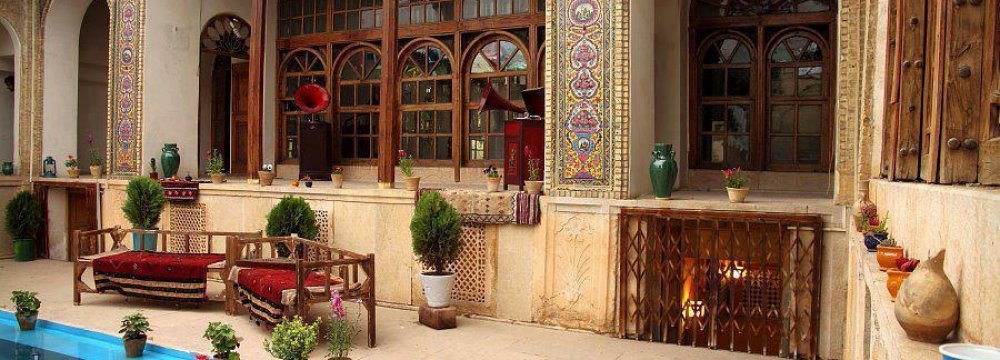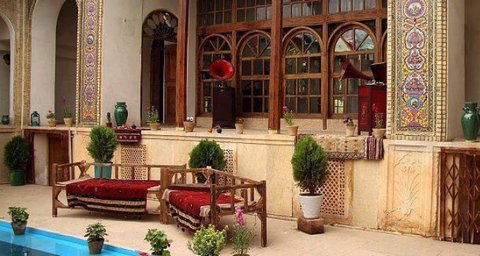Isfahan boasts natural attractions that create high potentials for ecotourism so much so that the industry has increased fourfold in the past four years.
Isfahan is also a leading province in terms of ecolodges. The high demand for traditional tourist accommodation in Isfahan has also given rise to ecolodges from merely 50 to over 200 in four years.
Foreign travelers, particularly Europeans, have shown much interest in visiting desert areas in the east of Isfahan Province, especially in Khor and Biabanak where ecolodges have been set up.

Currently, 208 such traditional accommodations are operating in 17 counties and over 50 are lined up to receive a license.
According to Fereydoun Allahyari, the head of the provincial ICHHTO, since the beginning of the current Iranian year (Mach 21) alone, 12 ecolodges along with 45 tourism development projects have received a preliminary approval.
This is while 23 villages have been introduced as special tourist zones to boost rural tourism.
“The rural tourism sector of Isfahan has so far created 2,354 jobs,” he said.
The official noted that the main goal of provincial authorities has been expansion of sustainable tourism across all counties and regions of Isfahan, and ecotourism offers a great opportunity.
Allahyari hoped that the number of visitors will increase with the establishment of more ecolodges across the province.
Ecotourism is defined by the International Ecotourism Society as “responsible travel to natural areas that conserves the environment and improves the welfare of local people.”
It is intended as a low-impact and often small-scale alternative to standard commercial mass tourism and its purpose is to conserve natural areas and environment and improve the well-being of the local people.
The new industry requires a variety of platforms and strategies for prosperity, including extensive advertising of the local and indigenous regions, maintaining roads in tourist attraction areas and, most importantly, establishment of ecolodges.
An ecolodge is normally run by a local family, provides not just an accommodation for travelers but an opportunity for locals to serve their regional cuisine, showcase handicrafts, perform traditional music and plays, and organize tours and events for visitors.
Isfahan Province has over 22,000 historical sites and monuments, of which 850 are nationally registered and four have been designated by UNESCO as World Heritage Sites: Naghsh-e Jahan Square, Masjed-e Jame', Chehel Sotoun Palace and Fin Garden.
The province offers 90 hotels and 65 guesthouses, out of which 57 hotels and 30 guesthouses are in the city of Isfahan.
Source: Financial Tribune


Your Comment